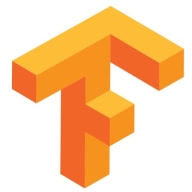

TensorFlow and Azure OpenAI compete in the AI and machine learning category, providing frameworks for model development and deployment. TensorFlow has an advantage in integration and cost-effectiveness, while Azure OpenAI is favored for advanced capabilities.
Features: TensorFlow's open-source nature provides flexibility and adaptability, allowing developers to create custom solutions efficiently. Its vast library support and active community enhance development experiences. Additionally, TensorFlow’s integration with CoLab facilitates easier execution of machine learning tasks on GPUs. Azure OpenAI offers state-of-the-art AI models with seamless Microsoft cloud integration, providing scalability and superior AI functionalities, including deep learning and conversational capabilities.
Room for Improvement: TensorFlow may require enhancements in integration procedures for diverse enterprise environments and simplification of its steep learning curve for new users. Expanding comprehensive tutorials for beginners could further improve accessibility. Additionally, enhancing support for lesser-known languages would broaden usage opportunities. Azure OpenAI could improve its geographic availability and address rate limiting issues with its GPT models. Users also note the need for better subscription packages to optimize usage costs and availability of newer models across more regions. Security and compliance processes should also continue to be streamlined for enterprise adoption.
Ease of Deployment and Customer Service: TensorFlow benefits from extensive community support with detailed documentation and forums aiding deployment processes. User resources are highly collaborative, assisting in faster problem resolution. Azure OpenAI offers robust deployment support via Microsoft’s tailored consultations, providing a structured and guided integration experience within Azure’s ecosystem, which can be highly advantageous for existing Microsoft clients.
Pricing and ROI: TensorFlow’s open-source platform results in reduced initial costs, making it economically advantageous for startups and research applications, suggesting strong ROI potential. While Azure OpenAI has higher associated costs, its comprehensive features and seamless Azure service integration present significant ROI potential through enhanced capabilities and enterprise-level scalability.
| Product | Market Share (%) |
|---|---|
| Azure OpenAI | 9.4% |
| TensorFlow | 6.6% |
| Other | 84.0% |


| Company Size | Count |
|---|---|
| Small Business | 16 |
| Midsize Enterprise | 1 |
| Large Enterprise | 19 |
| Company Size | Count |
|---|---|
| Small Business | 12 |
| Midsize Enterprise | 3 |
| Large Enterprise | 3 |
Azure OpenAI integrates advanced language models with robust security for precise information extraction and task automation. Its seamless Azure integration and drag-and-drop interface simplify implementation and enhance accessibility.
Azure OpenAI offers a comprehensive suite of features designed for efficient data processing and task automation. It provides high precision in extracting information and strong conversational capabilities, crucial for developing chatbots and customer support systems. Its integration with Azure ensures seamless data handling and security, addressing key enterprise requirements. Users can employ its versatile GPT models for diverse applications such as predictive analytics, summarizing large documents, and competitive benchmarking. Despite its strengths, it faces challenges like latency, inadequate regional support, and limited integration of new technologies. Improvements in model fine-tuning and more flexible configuration are desired by users.
What features make Azure OpenAI a reliable choice?Azure OpenAI is implemented across industries like healthcare, finance, and education for tasks like invoice processing, digitalizing records, and language translation. It enhances policy management, document assimilation, and customer support with predictive analytics and keyword extraction. Organizations in such sectors benefit from streamlined workflows and task automation.
TensorFlow is an open source software library for high performance numerical computation. Its flexible architecture allows easy deployment of computation across a variety of platforms (CPUs, GPUs, TPUs), and from desktops to clusters of servers to mobile and edge devices. Originally developed by researchers and engineers from the Google Brain team within Google’s AI organization, it comes with strong support for machine learning and deep learning and the flexible numerical computation core is used across many other scientific domains.
We monitor all AI Development Platforms reviews to prevent fraudulent reviews and keep review quality high. We do not post reviews by company employees or direct competitors. We validate each review for authenticity via cross-reference with LinkedIn, and personal follow-up with the reviewer when necessary.